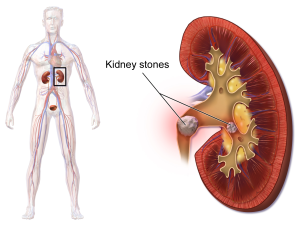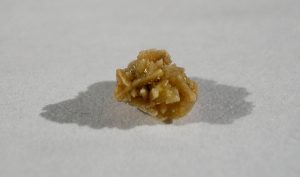This blog explains what you can expect from today’s most advanced kidney stone treatments. Kidney stones are painful, mineral-based deposits that form in the kidneys and can disrupt urinary flow. While many small stones pass naturally, larger or more problematic stones may require advanced treatment. Thanks to modern urology, there are now several highly effective, minimally invasive procedures to treat kidney stones.

When Are Advanced Treatments Necessary?
Advanced treatments for kidney stones are typically recommended when:
- Stones are too large to pass on their own (greater than 5-6 mm)
- Stones cause persistent pain, bleeding, or urinary obstruction
- There is an infection associated with the stone
- Repeated urinary tract infections occur due to stone presence
A urologist will assess the stone’s size, location, and composition through imaging and urinalysis before recommending the most appropriate treatment.
Extracorporeal Shock Wave Lithotripsy (ESWL)
ESWL is a non-invasive treatment that uses shock waves to break kidney stones into smaller fragments that can be passed naturally through the urinary tract.
What to Expect:
- The procedure is usually performed on an outpatient basis and takes about an hour.
- Patients may receive mild sedation or anesthesia to remain comfortable.
- Recovery is typically quick, with most people returning to normal activities within a few days.
- Mild bruising or blood in the urine is possible temporarily.
Ureteroscopy with Laser Lithotripsy
This procedure involves passing a thin, flexible scope through the urethra and bladder into the ureter or kidney to directly access the stone. A laser is then used to break the stone into smaller pieces.
What to Expect:
- Performed under general anesthesia.
- Usually done as an outpatient procedure.
- A temporary stent may be placed in the ureter to facilitate healing and drainage.
- Slight discomfort or urinary urgency is common for a few days post-procedure.
- Ureteroscopy is highly effective for mid-sized stones and those located in the ureter or kidney.
Percutaneous Nephrolithotomy (PCNL)
PCNL is a minimally invasive surgical procedure used for treating large, complex, or stubborn kidney stones.
What to Expect:
- Requires a small incision in the back to access the kidney directly.
- A nephroscope is inserted to locate and remove the stone or break it into removable pieces.
- Performed under general anesthesia and may require a short hospital stay (1–2 days).
- Ideal for large stones or those that ESWL and ureteroscopy cannot treat effectively.
Holmium Laser Enucleation (HoLEP) for Complex Cases
Though HoLEP is more often used to treat prostate issues, it can also be employed in specific cases where stones are embedded in tissue or coexisting conditions exist.
What to Expect:
- A high-powered holmium laser disintegrates both stones and obstructive tissue.
- Minimally invasive with a catheter typically placed for a short period after the procedure.
- Rapid recovery and high success rates in complex stone cases.

Post-Treatment Recovery and Prevention
Recovery varies based on the procedure used but generally includes:
- Hydration to help flush out stone fragments
- Pain management, typically with mild medication
- Follow-up imaging to confirm complete stone removal
Prevention strategies are crucial to avoid recurrence. These include:
- Drinking at least 2-3 liters of water per day
- Following a diet low in sodium and oxalate-rich foods
- Regular follow-ups and metabolic evaluation
Advanced Treatments for Kidney Stones: Conclusion
Advanced kidney stone treatments such as ESWL, ureteroscopy, PCNL, and laser lithotripsy offer effective, minimally invasive options tailored to each patient’s needs. With today’s technology, recovery is faster and outcomes are better than ever.
If you’re struggling with kidney stones, consult Dr. Yaniv Larish at Fifth Avenue Urology. Dr. Larish provides expert evaluation and advanced treatment options using the latest technology to ensure the best possible results.
FIFTH AVENUE UROLOGY
Dr. Yaniv Larish
4 East 76th Street
New York, NY 10021
Phone: 212-675-3186
Website: www.fifthavenueurology.com
For more information about Dr. Larish and his expertise, visit https://www.fifthavenueurology.com/about-dr-yaniv-larish/.
